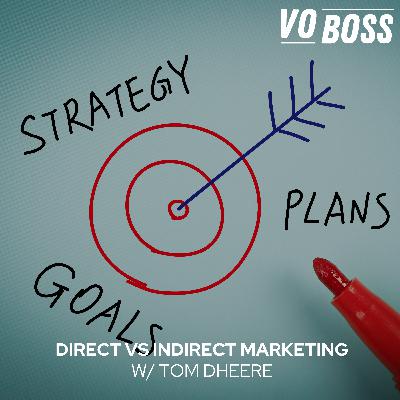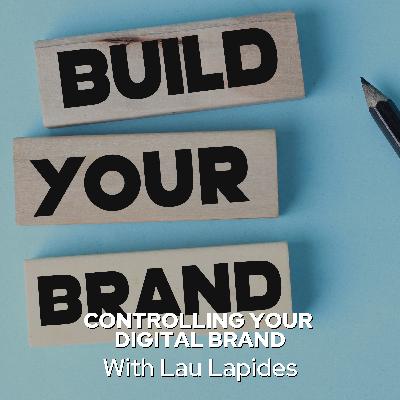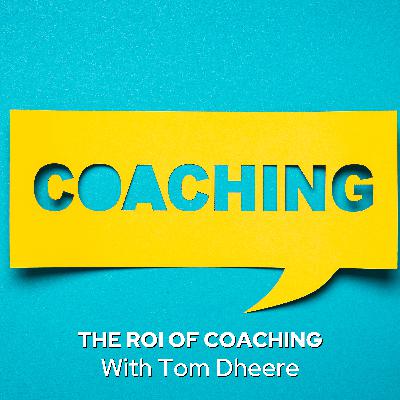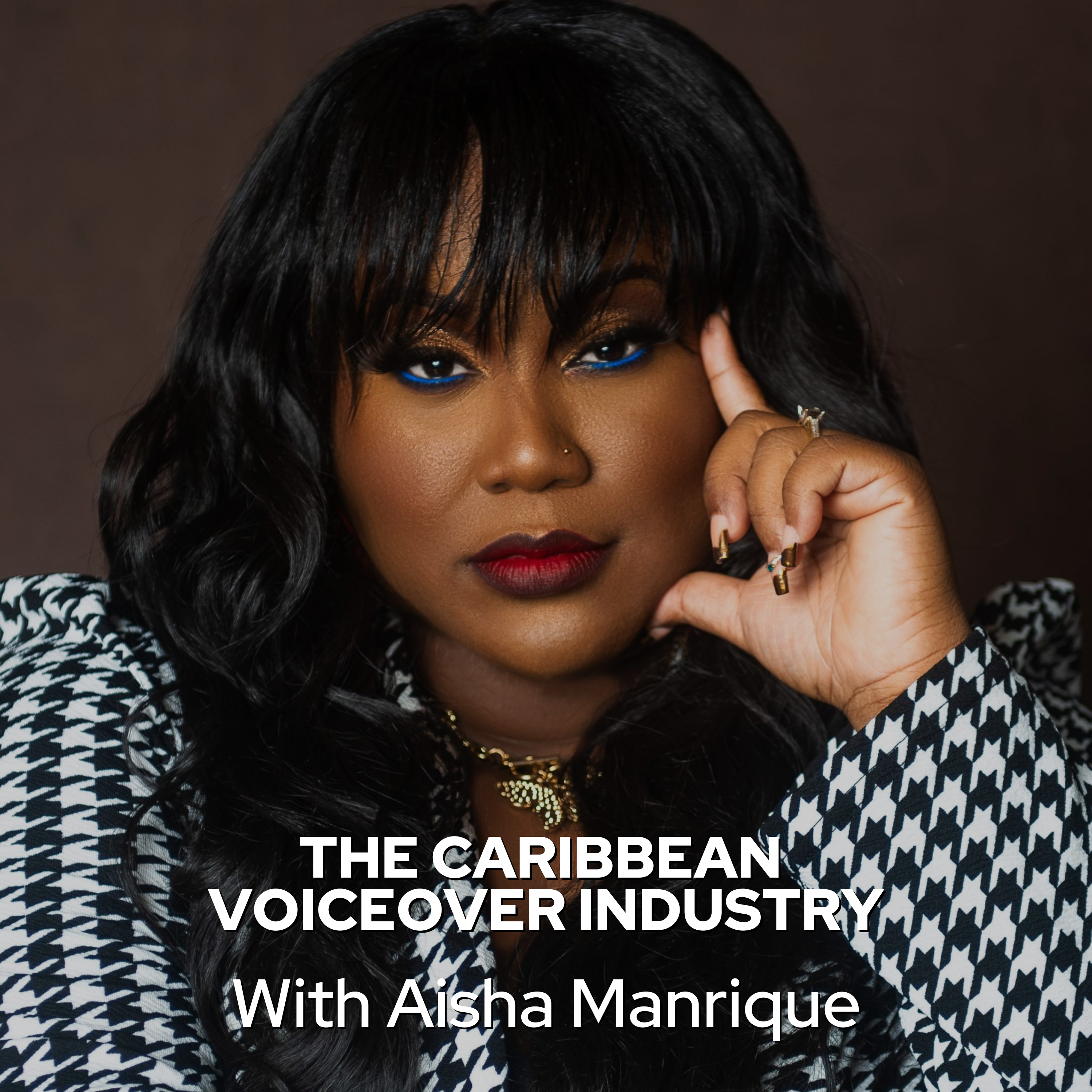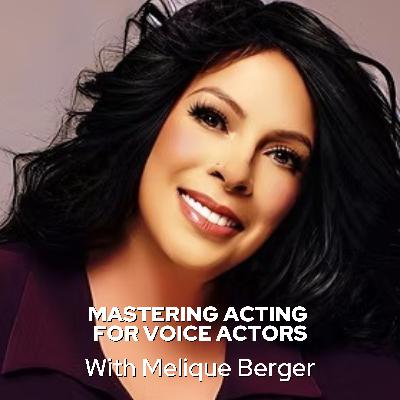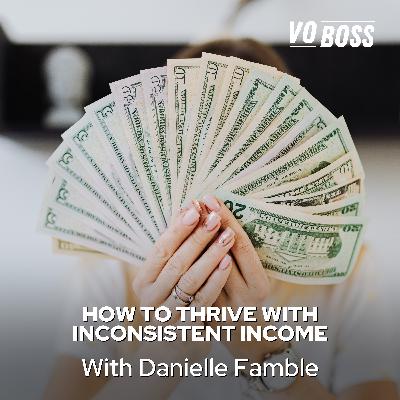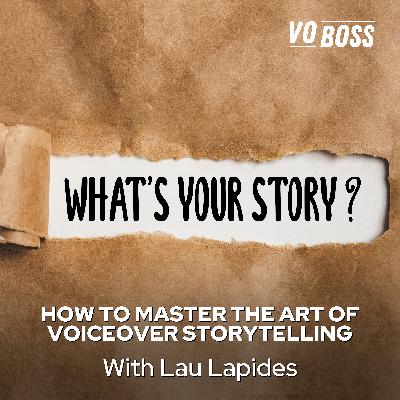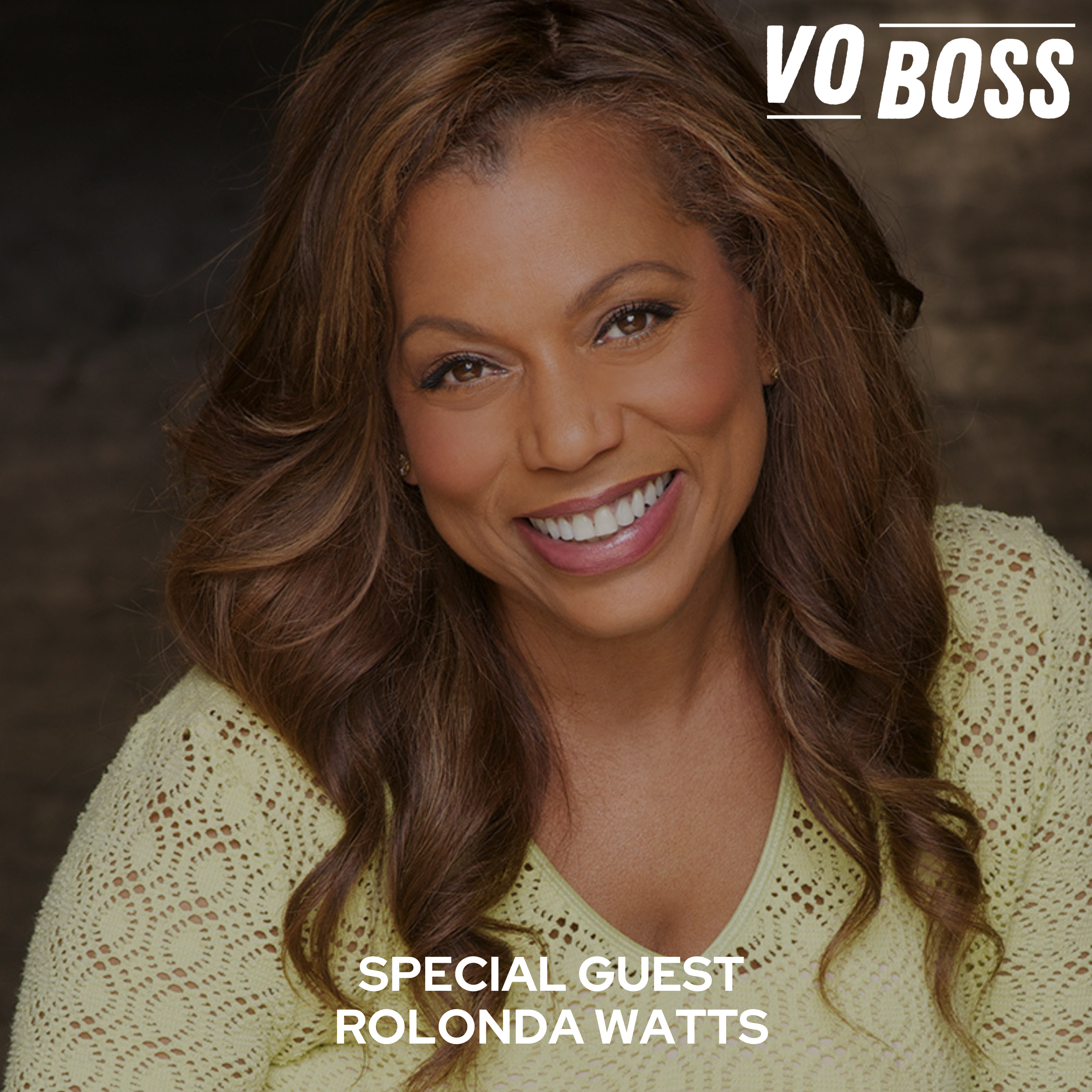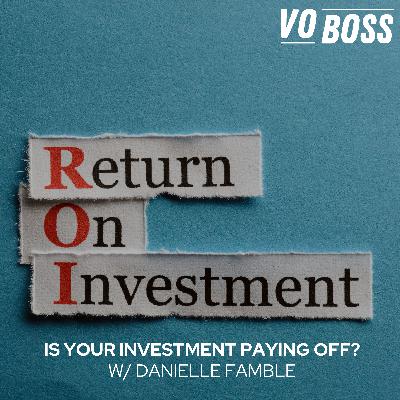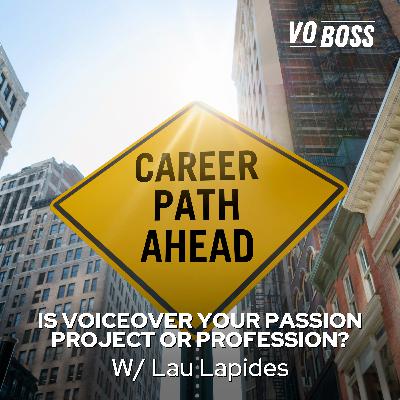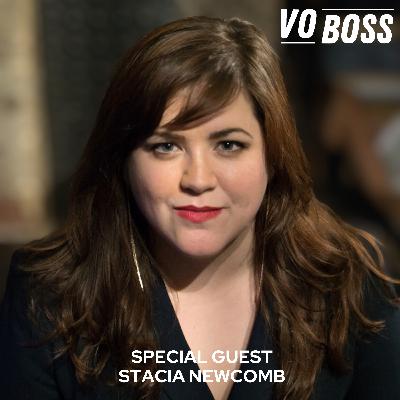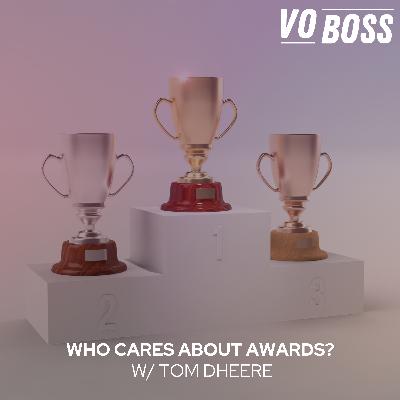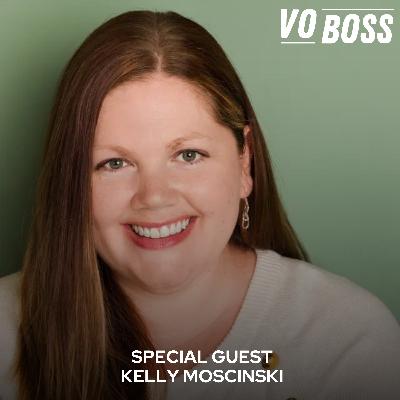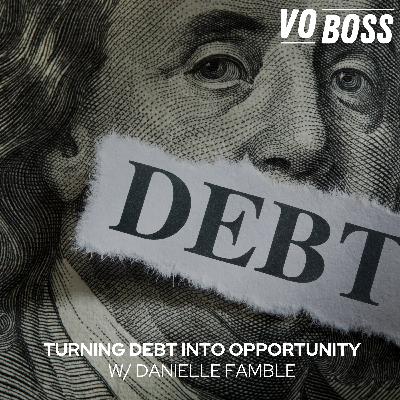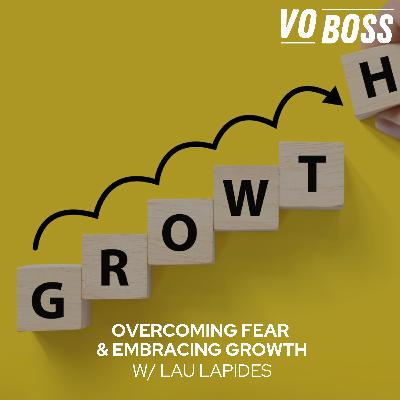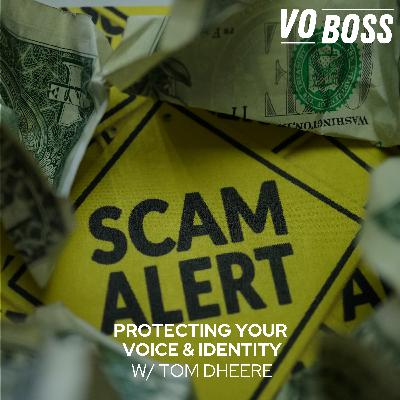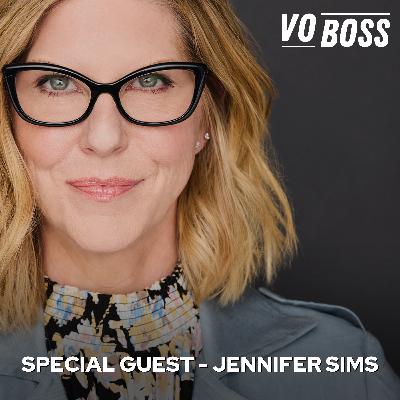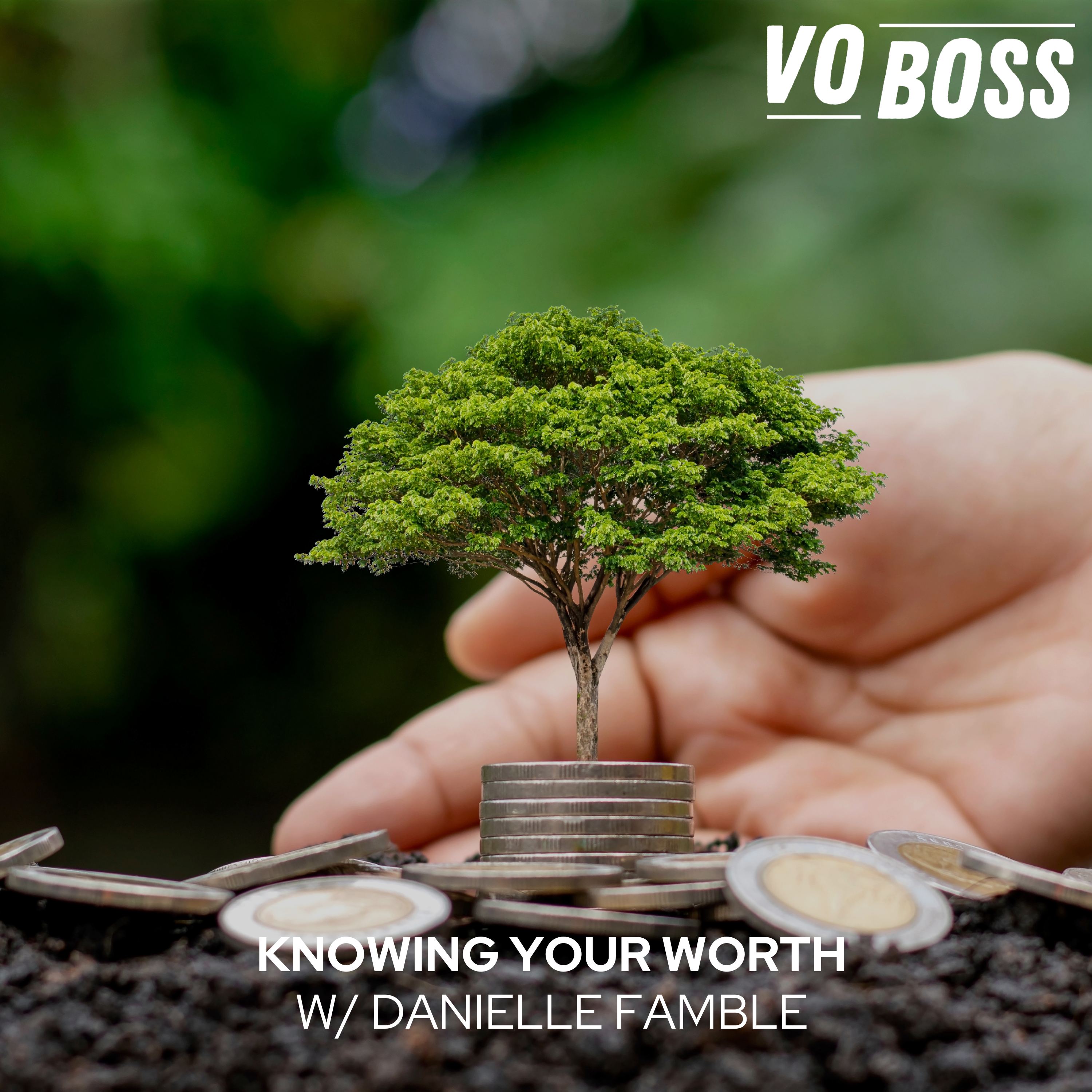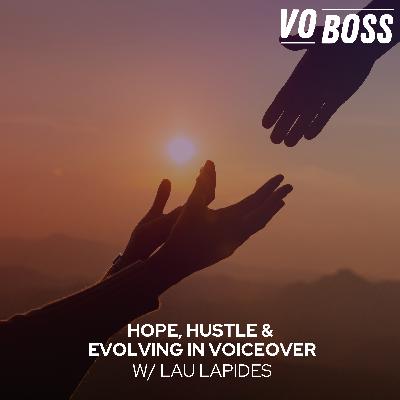Direct vs. Indirect Marketing
Description
BOSSes, Anne Ganguzza is joined by Tom Dheere to tackle a topic many voice actors fear most: marketing. In this episode, they break down the essential difference between direct marketing (you go to them) and indirect marketing (they come to you). The hosts discuss how to make both strategies work for you, offering a powerful, actionable roadmap for building a sustainable voiceover business.
00:01 - Anne (Host)
Hey boss listeners. Are you ready to turn your voiceover career goals into achievements? With my personalized coaching and demo production, I'm here to help you reach new milestones. You know you're already part of a boss community that strives for the very best. Let's elevate that. Your success is my next project. Find out more at anneganguzza.com.
00:25 - Speaker 2 (Announcement)
It's time to take your business to the next level, the boss level. These are the premier business owner strategies and successes being utilized by the industry's top talent today. Rock your business like a boss a VO boss. Now let's welcome your host, Anne Ganguzza.
00:44 - Anne (Host)
Hey everyone, welcome to the VO Boss podcast and the Real Boss series. I'm your host, Anne Ganguzza, and I'm here with Mr Tom Dheere. Hello, hello, hello, the Real Boss, Tom Dheere.
00:56 - Tom (Guest)
Hi, I'm seeing the light ring in my glasses. I'm going to change. I want to change these.
01:01 - Anne (Host)
Wait, I thought you said I'm seeing the light.
01:03 - Tom (Guest)
I'm seeing the light. Well, yeah, no, but the light was seeing me and my glasses, so I'm switching over. I have, like different pairs of glasses for where I'm at.
01:11 - Anne (Host)
No, really. So like these are better. I hear that. I hear that Yours are part of a marketing strategy.
01:18 - Tom (Guest)
Mine are purely because my eyeballs are decomposing. I can hear them.
01:22 - Anne (Host)
But me too, though, I need them as well, and I figure I might as well make them part of a marketing strategy. And speaking of marketing, yes. Great segue, isn't it? I think it's one of the most feared things for any voice actor is to actually think and do marketing, and so it's a great topic to talk about, because, I mean, we could talk like multiple podcasts about it, but let's talk about marketing Indirect marketing, direct marketing. They're both important.
01:49 - Tom (Guest)
Yes, absolutely.
01:50 - Anne (Host)
Let's distinguish the difference.
01:52 - Tom (Guest)
Right, and this is the thing that when most people come into the voiceover industry, they think and their instinct is correct, so I need to market myself. What does that mean? For most people, it's slamming into social media sideways and talking about what they had for breakfast, or it most often means cold calls and cold emails. Now, you can clearly lump all of that stuff together into marketing, but there's a lot more to it. It's a lot more nuanced than that.
02:18 - Anne (Host)
You say the word cold calls and I think people go cold. I know they do. They're like oh no cold calls now.
02:25 - Tom (Guest)
So the way I talk about it is that there is direct marketing and then there is indirect marketing, also known as active marketing or passive marketing. So direct or active marketing is when you are seeking out specific potential clients and you are basically grabbing them by the lapels and saying, hey, you give me money to say stuff out loud.
02:48 - Anne (Host)
Here I am. Hello, this is me.
02:50 - Tom (Guest)
Hello, right Now that's a cold call, that is a cold email. There's also follow-up emails and getting your seven touches.
02:57 - Anne (Host)
And that's direct, because it's direct contact with a potential client.
03:01 - Tom (Guest)
Exactly. And then there is indirect marketing, which is where you're kind of like doing your thing over here in hopes that people or robots will notice you Right and come to you Right. So, for example, working on search engine optimization on your website, that's a form of indirect marketing or passive marketing, because if somebody's searching for you, hopefully your website or your content will rank higher on Google, bing, yahoo and they'll be like, hey, who's this person? And then they reach out to you Right.
03:30 - Anne (Host)
Or they're seeing you on social media.
03:32 - Tom (Guest)
Social media, exactly, is another perfect example of indirect marketing. So that's where you're kind of like demonstrating your value, your progress, your humanity as a voice actor and a person, in hopes that it will get voice seekers' attention and be engaged with your content and hopefully you'll stay top of mind for future projects.
03:50 - Anne (Host)
An easy I would say an easy way of thinking about it is direct marketing. You go to them In direct marketing. They're coming to you.
03:58 - Tom (Guest)
Exactly. Yeah, that's exactly right.
04:00 - Anne (Host)
I think, equally terrifying for voice actors yes, yes, I think that it's great that we made the distinction now between the two.
04:09 - Speaker 2 (Announcement)
And.
04:09 - Anne (Host)
I think the one that really causes people probably the most terror is the direct marketing part of it, because they have to reach out to someone who is a complete stranger to them and that we are a complete stranger to them and they're a complete stranger to us. And so direct marketing, I think, requires, I think, a little more knowledge, so it makes it a little less scary.
04:29 - Tom (Guest)
I think so too.
04:36 - Anne (Host)
That's the way I see it, and what I try to explain to a lot of my students who talk about marketing and their fear of marketing is, of course, all the indirect methods, which they're probably much more apt to do, because they can create a blog, they can go on social media, they can create a video, they can do things like that, and that to them, I think, is more of a concrete path than oh my God, I got to go find someone. Who do I reach out to, what do I say and how does that work? And so I think the first distinction that I want to make with direct marketing is to make it less terrifying. Is that I want to make with direct marketing is to make it less terrifying is just an understanding that people have needs. How many times can I bring up the Chanel lipstick, right?
05:09 - Speaker 2 (Announcement)
How many times it's a great example.
05:10 - Anne (Host)
I just keep going back to it where here's the Chanel lipstick. It is part of my brand and I want to work with this company, chanel, and so ultimately, they don't know who I am. I mean, I kind of know who they are, but I don't know exactly who I should contact. And so when does Chanel have a need for voiceover? Right, when they have a campaign, right when they have a campaign and when maybe they have a voiceover and they want to replace that voice, and so it's very much based on need and when they need voiceover, a voiceover.
05:41
It's not that. Oh, I'm going to reach out and I never heard back and therefore that's a bad lead or it didn't work or I'm done. I failed. You cannot think that, guys, because it's all on a timely basis, so when I need a new lipstick, I'm not constantly searching for a new lipstick, but when I need one, then if an email comes my way or a social media ad comes my way talking about a new shade of red, I'll be like, oh, I need that, let me look into it.
06:10
And that's the same thing that, as a voice actor, you need to understand about direct marketing.
06:14 - Tom (Guest)
Right, put it another way. And what are the client's pain points? How can you cure what ails them? How can you solve their problems? So I'm going to take your Chanel lipstick example and I'm going to continue it. So let's put it in voiceover terms Chanel wants to advertise that lipstick. So they want to make advertisements of some sort. It could be print, it could be digital, it could be TV, radio streaming or whatever. Right, chanel?
06:42 - Anne (Host)
Look to me, Chanel. I talk about you all the time. I'm just saying In my podcast Please make Anne a compensated endorser for your lovely products.
06:51 - Tom (Guest)
So Chanel usually would have to hire a marketing agency or an ad firm or something like that to come up with whatever. The concept would be. Okay, well, this is Chanel, it's this type of lipstick, we're targeting this type of audience, or they?
07:04
have it in-house or they have it in-house and they'll say, okay, well, our demographic is women of this particular age range.
07:19
Okay, so we need to make sure that the content and context of the advertisement is making sure that we're targeting that particular demographic.
07:22
It needs to appeal to them on a visual or an auditory level or some other combination of that. Maybe we need to get an influencer in here or a celebrity or something like that, but we still need a voice actor to do whatever the radio or streaming or TV is. So they come up with a concept, they write the script. Now they need to get a production company to turn this script into reality and then the production company now this is where they have choices. They can go to a casting director and a casting director and the casting director can then reach out to agents and managers to find the voice actors. They can post that casting notice on a casting site like a Voice 123 or a VO Planet or a Badalgo, or they can have their own roster of voice actors that every time a casting notice comes up, they go through their own list of voice actors. T

